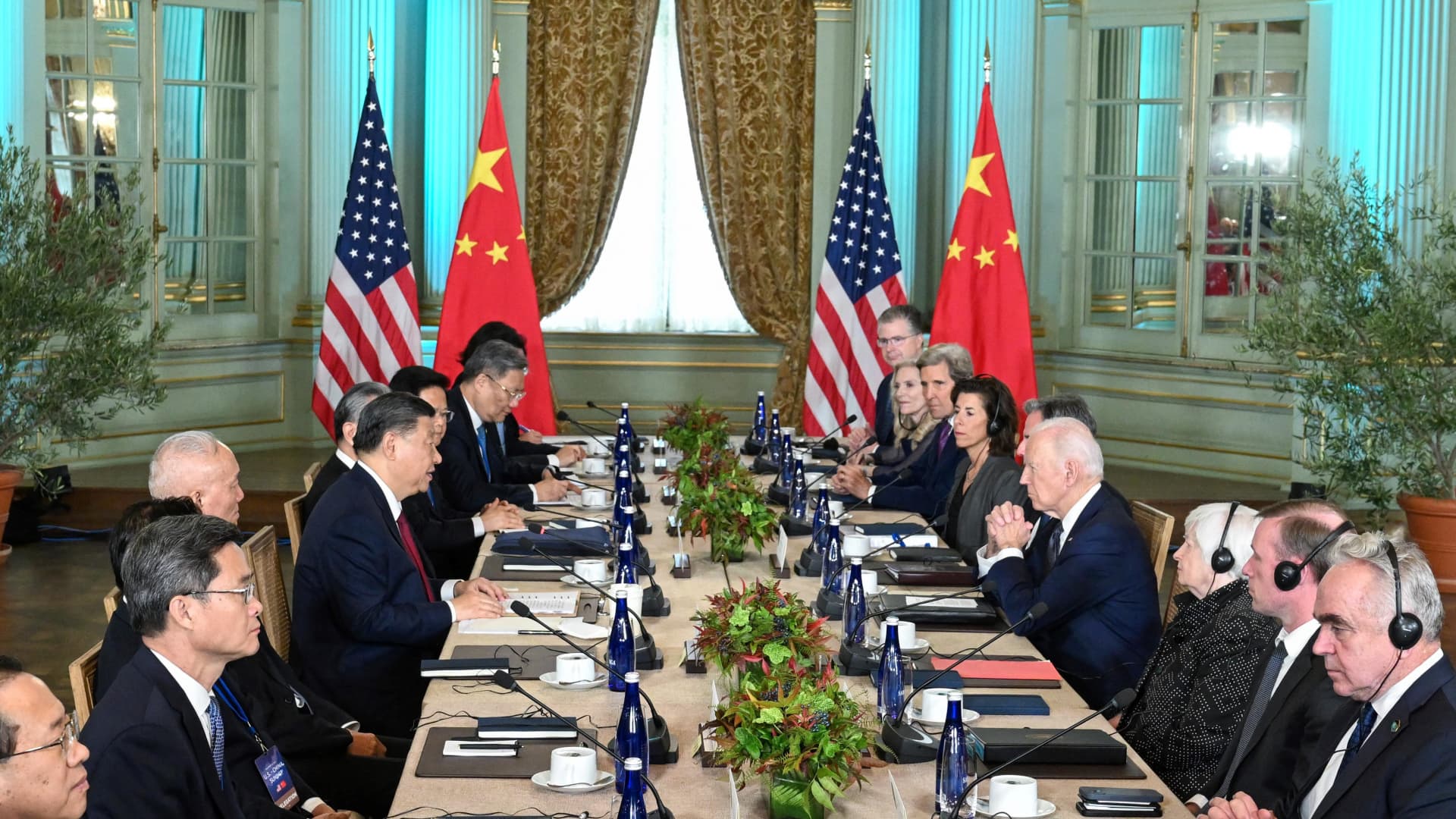In recent developments, Taiwan has been facing increasing military pressure from China. This aggression has coincided with the resumption of talks between the United States and China aimed at stabilizing their relations. The provocative actions by China have sparked concerns and raised tensions in the region.
Significant Military Deployment
China’s recent display of military force towards Taiwan has been noteworthy. On a single day, China dispatched a substantial fleet consisting of 33 military aircraft and six naval vessels towards Taiwan. Moreover, a significant number of these aircraft crossed over the Taiwan Strait, further exacerbating the situation. These aggressive maneuvers have drawn attention to the fragile dynamics between the concerned parties.
Impact on U.S.-China Relations
The escalation of military activities has occurred simultaneously with efforts to mend the strained relations between the United States and China. A meeting between U.S. national security adviser Jake Sullivan and Chinese Foreign Minister Wang Yi intended to address the root cause of discord while exploring opportunities for cooperation. However, China’s military posturing has complicated these efforts and raised doubts about the prospects for constructive dialogue.
Sensitive Issue of Taiwan's Sovereignty
The sovereignty of Taiwan has long been a contentious issue in the relations between China and the United States. While China asserts its claim over Taiwan as an integral part of its territory, the U.S. advocates for Taiwan’s autonomy and self-governance. This fundamental disagreement has been a recurrent point of contention during bilateral discussions, including high-level summits between the leaders of the two nations.
Challenges and Concerns
The recent military maneuvers by China have added a layer of complexity to the already delicate balance of power in the region. The unresolved status of Taiwan and the conflicting positions of the involved parties present significant challenges and raise concerns about the potential for further escalation. The militarization of the Taiwan Strait and the surrounding areas has emerged as a focal point, underscoring the gravity of the situation.
Geopolitical Implications
The mounting military pressure on Taiwan has reverberated across the geopolitical landscape, prompting responses from various stakeholders. Taiwan’s democratic process, including the recent election of its president, has been closely watched and has elicited diverse reactions. This situation has also prompted the United States and its allies to assess and prepare for a spectrum of possible scenarios, given the heightened tensions.
Conclusion
The recent events, including China’s aggressive military posturing and the U.S.-China talks, underscore the intricate dynamics at play in the Asia-Pacific region. The unresolved status of Taiwan and the conflicting interests of major powers have added a layer of volatility to the geopolitical landscape. It is imperative for all concerned parties to engage in constructive dialogue and exercise restraint to prevent further escalation and maintain stability in the region.
Find out more about our sources here.


